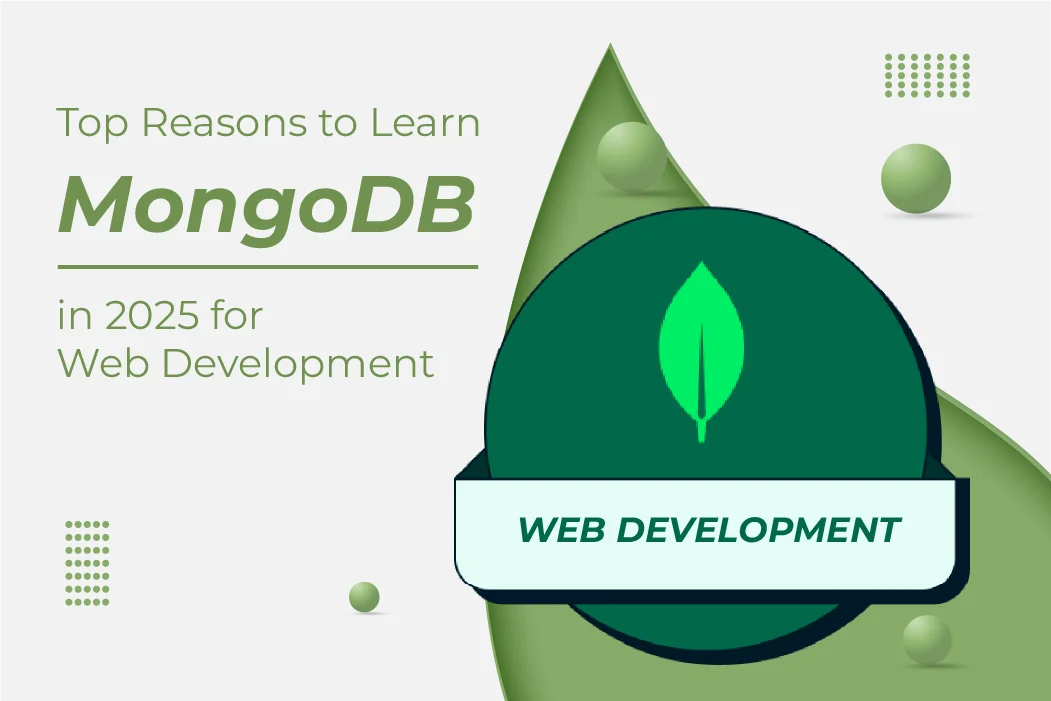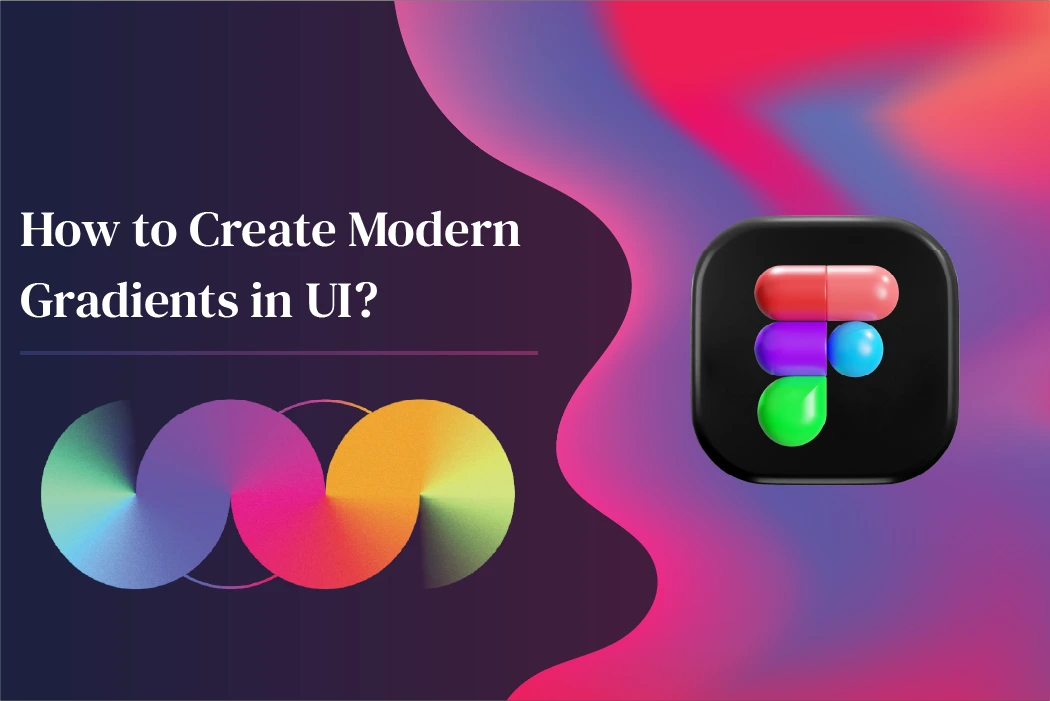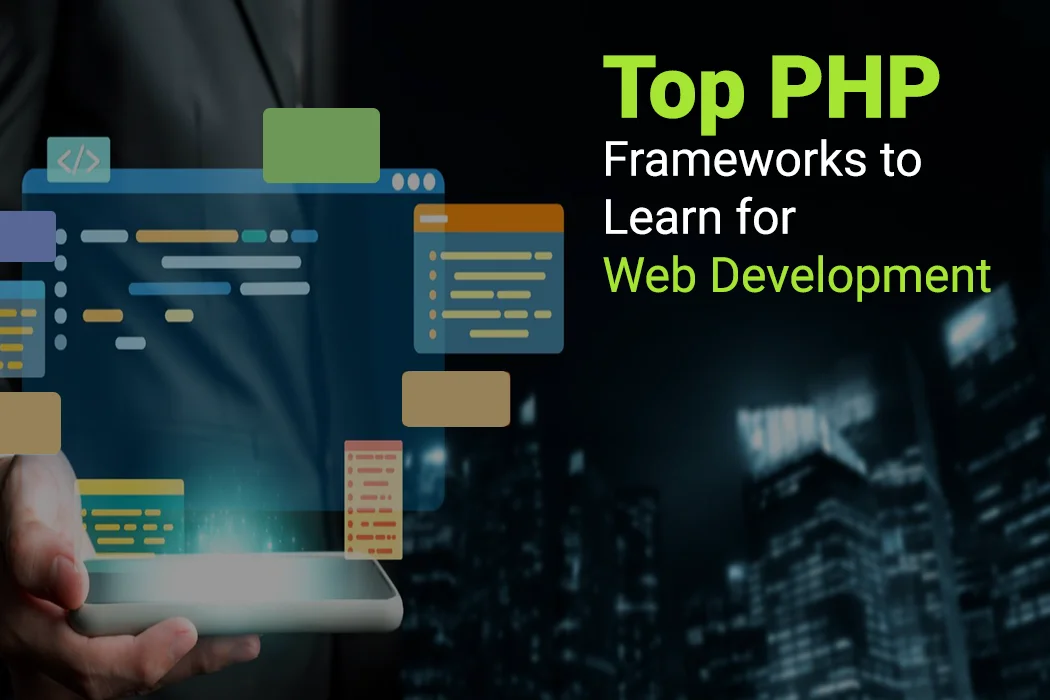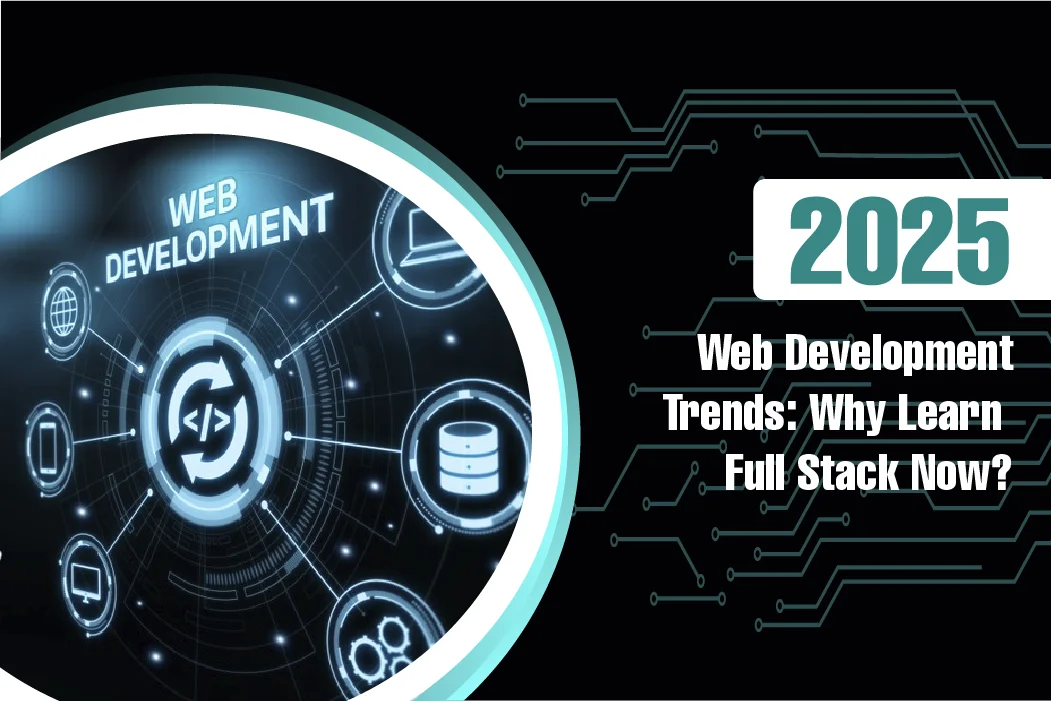
Top Reasons to Learn MongoDB in 2025 | Web Development Trends
In 2025, the world of web development continues to evolve at a breakneck pace. Technologies that offer scalability, flexibility, and cloud-native integration are at the forefront. MongoDB, the most popular NoSQL database, is at the heart of this change.
Learning MongoDB is important for everyone. It doesn't matter if you are a full-stack developer, a backend engineer, or a new software professional. It gives you a competitive edge.
Below, we dive deep into the top reasons why MongoDB is a must-learn database for web developers in 2025.
1. Schema-Less and Developer-Friendly Structure
Traditional SQL databases, like MySQL or PostgreSQL, need set schemas. Changing data structures later can be difficult. In contrast, MongoDB stores data in BSON documents (Binary JSON), which allows dynamic and nested fields.
Why this matters in 2025:
- Modern apps often require flexible data models—especially in agile development environments.
- MongoDB including different types of documents in the same collection. This makes it easier and faster to prototype.
- Perfect for JSON-centric frontend frameworks like React.js, Angular, and Vue.
Example: An e-commerce product catalog can store different specs for phones, shoes, or books—all in the same collection.
2. Powering the Modern Web: MongoDB + MERN/MEAN Stack
MongoDB is the database component of popular JavaScript-based full-stack development architectures like:
- MERN: MongoDB, Express.js, React, Node.js
- MEAN: MongoDB, Express.js, Angular, Node.js
This makes MongoDB the natural choice for full-stack JS development in 2025.
Key Benefits:
- Unified data format (JSON) across client, server, and database
- Streamlined REST and GraphQL API development
- Tight integration with ORMs like Mongoose.js
MongoDB simplifies complex data queries, such as user comments, likes, and threaded conversations, using embedded documents and aggregation pipelines.
3. Cloud-Native with MongoDB Atlas
In 2025, developers are deploying apps on multi-cloud or serverless platforms. MongoDB Atlas, the official cloud service, enables:
- Fully managed clusters on AWS, Azure, or GCP
- Autoscaling, auto-sharding, and continuous backups
- Built-in monitoring, security, and compliance tools
Real-World Uses:
- Host your production database in under 5 minutes
- Use Serverless Functions (like AWS Lambda) with MongoDB Atlas Triggers
- Connect Atlas to data lakes and BI tools for analytics
With MongoDB Atlas, your database is production-ready out-of-the-box, saving hours of DevOps effort.
4. Real-Time Data & Event-Driven Capabilities
Web apps in 2025 are increasingly real-time—chat apps, dashboards, live feeds, and collaborative tools demand fast data sync.
MongoDB supports this with:
- Change Streams: React to data management in real time
- Triggers: Run serverless functions on database events
- Streams + Kafka integration for event-driven architectures
Build real-time apps without third-party sync layers or polling mechanisms.
5. Powerful Querying and Analytics
MongoDB has evolved far beyond simple document storage. Its Aggregation Framework enables:
- Complex joins with $lookup
- Data transformation with $group, $project, $unwind
- Real-time analytics and reporting directly from the database
2025 Trend:
MongoDB now powers advanced dashboards using MongoDB Charts, integrating directly into BI workflows.
Example: Build an admin dashboard with filters, charts, and user insights—all driven by aggregation pipelines.
6. AI & Machine Learning Integration
MongoDB is increasingly used in AI-driven apps in 2025. Its structure supports:
- Unstructured and hybrid data models (text, images, vectors)
- Integration with LangChain, LLMs, TensorFlow, and Hugging Face
- Native support for Vector Search in Atlas, enabling semantic and similarity search
Ideal for powering smart search, personalized recommendations, and chatbot memory.
7. Scalable Microservices Architecture
Today's web apps consist of microservices and distributed systems. MongoDB provides:
- Horizontal scalability with automatic sharding
- Replica sets for high availability
- Integration with Kubernetes, Docker, and Helm Charts
MongoDB fits perfectly into a CI/CD pipeline and modern DevOps culture.
8. Enterprise-Grade Security and Compliance
Security and privacy are more important than ever in 2025. MongoDB provides:
- TLS encryption (in transit) and encrypted storage (at rest)
- Field-level encryption for sensitive data
- Role-Based Access Control (RBAC), LDAP, and IP whitelisting
Certified for GDPR, HIPAA, SOC2, ISO, MongoDB ensures your apps meet strict regulatory demands.
9. Rich Ecosystem and Developer Support
MongoDB boasts a thriving global developer community. In 2025, you get access to:
- Free learning paths via MongoDB University
- Hands-on certifications (Associate Developer, DBA, Architect)
- Community forums, Stack Overflow, Discord, and Reddit support
- Massive open-source tool ecosystem (Robo 3T, Compass, Mongoose, etc.)
Whether you're stuck on a schema design or looking for performance tips, help is just a click away.
10. Job Opportunities and Career Growth
MongoDB is used by tech giants (Uber, Adobe, eBay), fintechs, healthcare apps, and startups worldwide. Job portals in 2025 show:
- 25% year-over-year growth in MongoDB-related listings
- High-paying roles for MongoDB developers, architects, and consultants
- Demand across backend, full-stack, and data engineering roles
MongoDB certification can give you the edge in a crowded job market.
Final Thoughts
In a world that values speed and ease, MongoDB is a smart choice for modern web apps. If you are building real-time apps, AI services, or large platforms, MongoDB has the tools you need to succeed.



